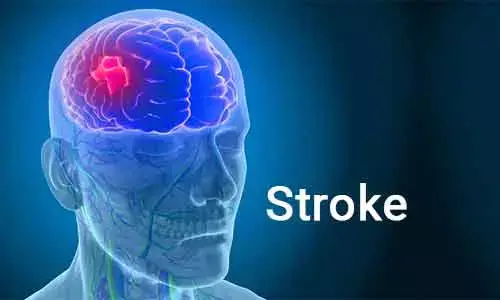- Home
- Medical news & Guidelines
- Anesthesiology
- Cardiology and CTVS
- Critical Care
- Dentistry
- Dermatology
- Diabetes and Endocrinology
- ENT
- Gastroenterology
- Medicine
- Nephrology
- Neurology
- Obstretics-Gynaecology
- Oncology
- Ophthalmology
- Orthopaedics
- Pediatrics-Neonatology
- Psychiatry
- Pulmonology
- Radiology
- Surgery
- Urology
- Laboratory Medicine
- Diet
- Nursing
- Paramedical
- Physiotherapy
- Health news
- Fact Check
- Bone Health Fact Check
- Brain Health Fact Check
- Cancer Related Fact Check
- Child Care Fact Check
- Dental and oral health fact check
- Diabetes and metabolic health fact check
- Diet and Nutrition Fact Check
- Eye and ENT Care Fact Check
- Fitness fact check
- Gut health fact check
- Heart health fact check
- Kidney health fact check
- Medical education fact check
- Men's health fact check
- Respiratory fact check
- Skin and hair care fact check
- Vaccine and Immunization fact check
- Women's health fact check
- AYUSH
- State News
- Andaman and Nicobar Islands
- Andhra Pradesh
- Arunachal Pradesh
- Assam
- Bihar
- Chandigarh
- Chattisgarh
- Dadra and Nagar Haveli
- Daman and Diu
- Delhi
- Goa
- Gujarat
- Haryana
- Himachal Pradesh
- Jammu & Kashmir
- Jharkhand
- Karnataka
- Kerala
- Ladakh
- Lakshadweep
- Madhya Pradesh
- Maharashtra
- Manipur
- Meghalaya
- Mizoram
- Nagaland
- Odisha
- Puducherry
- Punjab
- Rajasthan
- Sikkim
- Tamil Nadu
- Telangana
- Tripura
- Uttar Pradesh
- Uttrakhand
- West Bengal
- Medical Education
- Industry
Music therapy improves mood and accelerates stroke rehabilitation

Neurologic Music Therapy (NMT) has been found to not only lift mood of acute stroke patients but also improve rehabilitation results in multidisciplinary team setting.
There is increasing evidence for music-based interventions improve mood and functional outcomes in rehabilitation of stroke patients.
In the first large-scale study the researchers have found that music therapy sessions have a positive effect on the neurorehabilitation of acute stroke patients, as well as their mood.
The results of the study have been published in the journal Topics in Stroke Rehabilitation.
The study was led by Dr Alex Street, of Anglia Ruskin University (ARU), and was carried out on a 26-bed stroke and rehabilitation unit at Addenbrooke's hospital in Cambridge.
In total, 177 patients took part in 675 Neurologic Music Therapy (NMT) sessions over a two-year period. The researchers investigated its success among patients, their relatives, and health professionals.
Music therapy is understood to help stroke patients through mood regulation, improved concentration, and promoting changes in the brain to improve function, known as neural reorganisation. Physical benefits include better arm function and gait.
Lots of repetition, or 'massed practice', is central to neurorehabilitation. In addition to playing physical instruments (keyboard, drums and hand-held percussion), iPads featuring touchscreen instruments were used in the trial to help patients with hand rehabilitation, through improving finger dexterity, and cognitive training.
NMT sessions were run alongside existing stroke rehabilitation treatment, including physiotherapy, occupational therapy, speech therapy, and clinical psychology.
Of the 139 patients, relatives and hospital staff who completed questionnaires, the average response was that NMT was "helpful" or "very helpful". And of the 52 patients who completed mood scale questionnaires, there was a reduction in "sad" and an increase in "happy" responses immediately following a session.
Speech and language therapists observed a positive impact on patient arousal and engagement, and reported that it may help patients overcome low mood and fatigue - both common following stroke - and therefore be beneficial for their rehabilitation.
Following the success of the trial, the Cambridge Institute for Music Therapy Research at Anglia Ruskin University (ARU) and Addenbrooke's hospital are developing a proposal to establish a permanent NMT post on the stroke ward, funded by the NHS.
Dr Alex Street, Senior Research Fellow within the Cambridge Institute for Music Therapy Research at Anglia Ruskin University (ARU), said: "Our study found that Neurologic Music Therapy was received enthusiastically by patients, their relatives, and staff.
"The fact 675 sessions were carried out in two years is in itself an indication of the success of the treatment. It shows that staff are referring patients because they understand the mechanisms of the exercises and can see how it can benefit their patients. It also shows that patients are willing to do the exercises, with each one participating in an average of five sessions.
"Staff felt that using music and instruments allowed patients to achieve a high amount of repetition to help achieve their goals. They felt that the exercises appear less clinical, because the patients are playing music with the music therapist, and they are receiving immediate feedback from the exercises, through the sounds they create. Further research is necessary to establish potential effects of music therapy on recovery rate and length of hospital stay."
For further reference log on to:
Dr Kamal Kant Kohli-MBBS, DTCD- a chest specialist with more than 30 years of practice and a flair for writing clinical articles, Dr Kamal Kant Kohli joined Medical Dialogues as a Chief Editor of Medical News. Besides writing articles, as an editor, he proofreads and verifies all the medical content published on Medical Dialogues including those coming from journals, studies,medical conferences,guidelines etc. Email: drkohli@medicaldialogues.in. Contact no. 011-43720751


